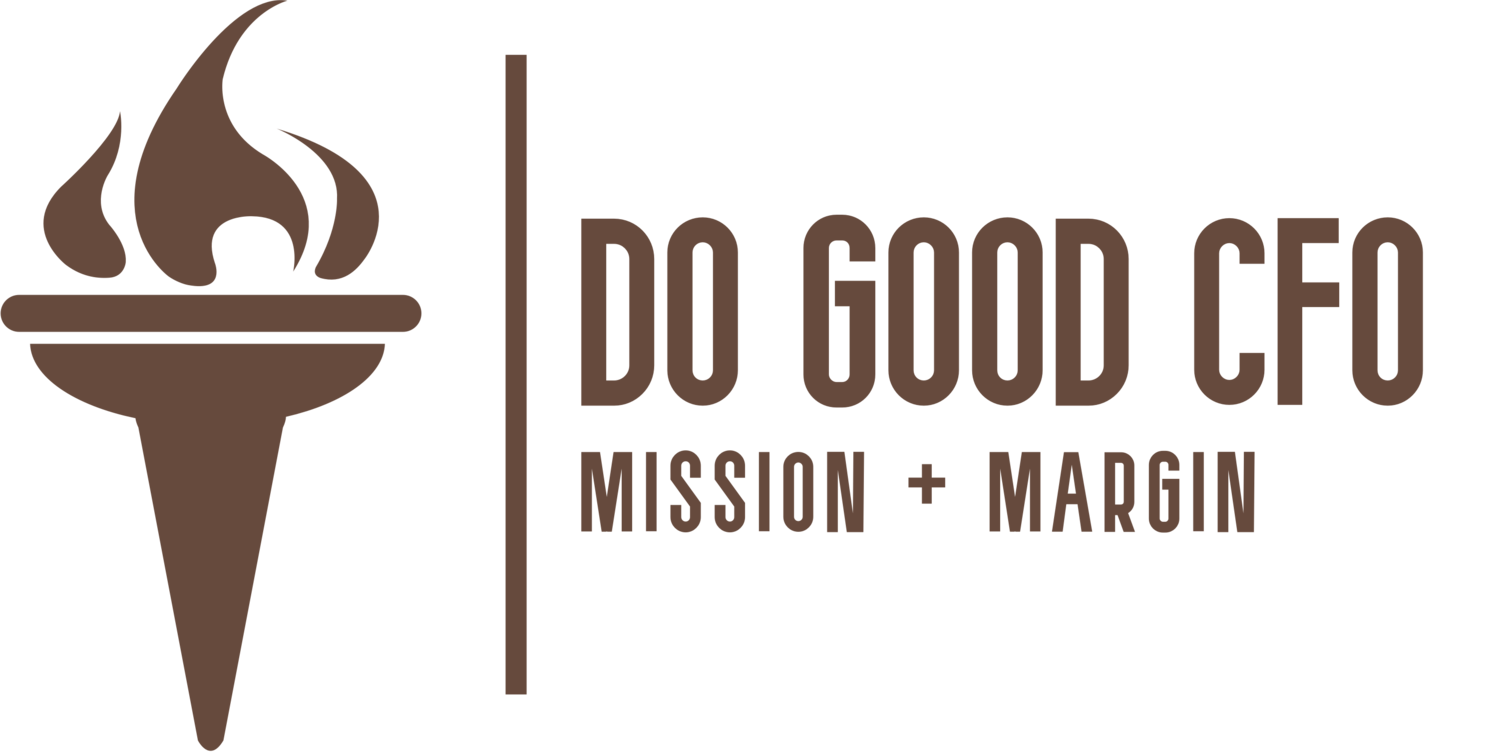10 Practical CFO tips for Social Entrepreneurs Navigating the Covid Economic Climate
We here at Do Good CFO hope this finds you, your loved ones and colleagues safe in these Corona Virus times. As we enter this period of uncertainty, we wanted to share some practical financial advice for mission driven entrepreneurs, based on what my company, Do Good CFO is seeing in our work as CFO advisors. One timely item is that today congress approved the stimulus bill that provides forgivable loans to finance payroll, healthcare and interest on debt. See Item 4 below for more info. In addition to this item here are other tips to share with those for whom you think this would be relevant.
No margin no mission. As social entrepreneurs, we are heavily focused on our impact on employees, suppliers, customers and stakeholders. As such, it can be challenging to switch into a financial preservation paradigm and make difficult choices to pivot, cut product lines, or make org chart adjustments. Nevertheless, we have to keep in mind that healthy profits and cash runway are fundamental to ensuring that our businesses will survive and therefore be around to continue fulfilling their mission.
Know your cash burn rate and runway. Do you really have as much cash runway as you think? If you have a good handle on runway and burn it will enable solid decision making. A good financial model to help you assess burn and runway is key to getting businesses through times like this.
Talk to your Customers. Use the next few weeks to get as much clarity as you can on sales and update your financial model accordingly. Some companies — such as shelf stable food companies — are experiencing surges in demand; other companies are experiencing very drastic declines in demand. Make sure to model a conservative downside scenario and see how it impacts cash burn and runway.
Apply for SBA’s Paycheck Protection Program. Congress just approved the a stimulus bill that includes the Paycheck Protection Program built into the SBA’s existing loan program, which will make forgivable loans available to qualifying small businesses to finance payroll, healthcare, mortgage interest and interest on debt. More detail will emerge as the SBA drafts implementing regulations in the next 15 days. These loans may be forgiven if the company does not reduce payroll during the eight week period after the loan is made. I have access to more detailed legal memo about this if you would like more info.
Prepare to take decisive action. In the 2009 recession it took a few years for consumer confidence to return. Companies that survived were those that acted decisively to cut costs in the face of declining sales. This included making difficult decisions to right size their businesses. But those that acted quickly survived and then found that when the dust settled they were still standing while their competitors were not
Be proactive in communicating with investors and banking partners. They are your allies and business partners for financing and it builds trust when you proactively reach out to communicate risks and management approach. Also keep in mind that financings could soften as happened in 2001 and 2009. If needed, your inside investors may be open to bridge financing if you have a solid, sustainable plan to navigate through.
Draw down available credit. If you have access to a credit Line it’s a good time to draw it down. If there is a credit crunch down the road you’ll be much safer with the cash in your bank, even if you’re paying more in interest.
Adjust working capital to extend runway. Consider making cuts in incoming inventory, slowing down payments to suppliers, and try to collect on key AR.
Remember that crisis is also an opportunity. If you’re business has not been break even until now this may be an opportunity to reset by making big cuts to expenses.
Stay connected to others with shared Mission. Check in with your peers about how they are navigating the crisis. In addition to these practical tips there may be broader ways the social impact community can unite to manage through trying times.
Please pass this along to entrepreneurs for whom this is relevant and let me know if there are other innovative ways you are using financial planning to make it through these times.
Warm regards and stay safe,

